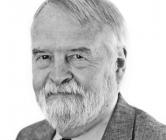We are celebrating the 10-year anniversary of Debats d’Educació by giving the educational community the opportunity to air its views
What does being a good education professional mean in the 21st century?
It is, perhaps, not a very audacious observation to state that, today, teachers continue to be the cornerstone of any education system. Indeed, it is a simple matter to take stock of their critical role, if we remember that they are ultimately responsible for accompanying children and young people in the process of learning the skills that will be essential to them if they are to become active and participative citizens with a commitment to social progress. Nevertheless, the task of being a teacher has become more and more complex. In our globalized world, the functions of an educator are being redefined in order that they may meet the challenges of a society based on the knowledge economy. Access to compulsory education has reached a progressively broader range of social sectors which demand flexible responses from teachers in order to cover diverse educational needs.
However, this complexity with which teachers are confronted has not been clearly addressed, either in the settings that should provide them with innovative ideas, or in initial training and professional development models that could furnish them with tools and incentives to approach their day-to-day work with confidence and make the profession an attractive one. Ultimately, the degree of responsibility that society has conferred on these professionals would not appear to have been matched by a similar degree of social recognition of the teaching profession, recognition that would establish the means to attract and retain more teachers of quality in schools. Therefore, the appropriate interpretation of what being a good education professional means in the 21st century would appear to raise an issue that is yet to be resolved and, at all events, one that is vital to the provision of education of quality, as a public service.
The 3 things they have learned...
- 1Lay teachers for a human community who are familiar with the multicultural backgrounds of pupils
- 2Teachers who can act as guides in an environment of diffuse learning, distributed education and networked schools
- 3Responsible and enterprising professionals who are not just part of the landscape: they are part of the solution, not the problem
- 1Being a good communicator, with a richness of expression and the capacity to listen and be supportive
- 2Having in-depth knowledge and an interest in knowing and learning more
- 3Approaching their tasks with a sense of commitment and personal responsibility, and a willingness to share and work as a team
- 1Teachers’ competencies must be improved if we wish to improve education
- 2Teachers must work in collaboration and overcome isolation
- 3Supporting teachers in their classes is fundamental to the introduction of work into the classroom and reflection on this work













 The texts published on this website are, unless otherwise indicated, covered by the Creative Commons Spain Attribution 3.0 licence. You may copy, distribute, transmit and adapt the work, provided you attribute it (authorship, journal name, publisher) in the manner specified by the author(s) or licensor(s). The full text of the licence can be consulted here:
The texts published on this website are, unless otherwise indicated, covered by the Creative Commons Spain Attribution 3.0 licence. You may copy, distribute, transmit and adapt the work, provided you attribute it (authorship, journal name, publisher) in the manner specified by the author(s) or licensor(s). The full text of the licence can be consulted here: